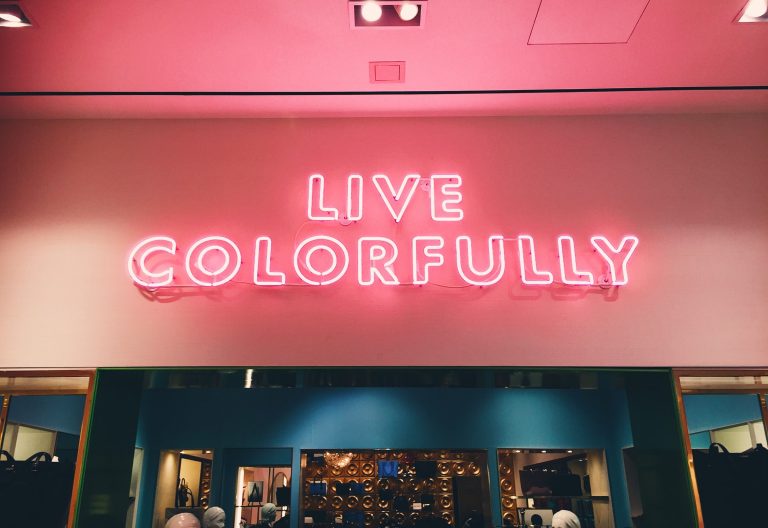Systemic Coaching: For the person, the organisation and the system
When working as a coach in organisations people are often a little unsure of what this really means. I totally get this! Lots of coaching is branded as “marketing coaching” or “social media coaching” and this is often seen in a similar way to “football coaching” and understood to be quite specific and skills-based. The same is often true in the Agile or Leadership space although these types of coaches can appear anywhere on a spectrum, which probably confuses people even more.
This more directive model of coaching often has a lot in common with teaching or mentoring where there is an expert advisor on hand to correct the person coming to coaching. This type of coaching is extremely valuable when we know what skills we need and we are looking to sharpen our expertise or work with a specific framework.
However, professional coaching, which in my case is largely systemic in nature, is a more holistic, open and deeper approach to coaching. I guess that you could say that it challenges people to think and feel about themselves and the world in different ways to enable transformative long-lasting results.
In my experience I find that this is most useful when people are potentially facing into a big challenge or opportunity such as a career transition, a life transition or big programme of work and are:
- in a slight state of frustration because maybe there are dynamics that they can’t get quite get their head around
- possibly feeling reflective, contemplative or curious about a certain question or aspect of their life or work and they just want to explore it more deeply
- wanting to make the most of this new adventure and align their impact with their intention
- or I also have fantastic and fruitful conversations with people if they don’t consciously know what they are bringing to coaching and we start from where we are are and see what opportunities and insights we uncover together
These are the squiggly questions that we can’t quite work out in a linear fashion, areas of life where the text book falls short, or as one of my clients poetically said “I have learnt to bring the confusion with me”.

One of the tricky elements that I have found, when choosing between these different modalities of coaching, is that we often think we know what specific type of coaching we need but if we take a step back and embrace the confusion for a little while we can challenge our assumptions and come up with some more left-field and transformative ideas to explore. However this requires a little vulnerability, courage, trust and the willingness to step into the unknown, which are all great leadership attributes of course!
This is true whether we are talking about coaching for organisational transformations, a leadership team working on a gnarly challenge or 1:1 exec, leadership or life coaching.
With this open approach people who are new to coaching are often curious to know what other people bring to coaching. The question seems to come from a place of not wanting to get it wrong, to make the most of their experience and maybe of wanting to be normal.
Of course pretty much anything goes from team dynamics and leadership models to exploring areas of stuckness that straddle life and work that we may have carried since we were young. What they may not be aware of yet is that no matter how how hard we try, we all bring all of who we are to every thing that we do and coaching is a great opportunity to develop a better understanding of what that is, how it is impacting our current reality and how we might want to shape or develop ourselves to best face into our futures.
Naturally, sometimes this leads us to reflect on our lives inside and outside the workplace, if that is in service of a client’s goals and if it is an area that they wish to bring into the coaching domain. Nothing is mandated of course, we unfold the engagement around what the people want to bring.

Inside-out
Throughout our lives we have all been part of a whole range of systems or groups of humans. As we have lived we have developed our understanding of how we exist in these various groups. We use them to form our identity, our perceptions for what acceptable behaviour is and the rules that we live, love and work by.
These groups are influencing us from the moment we are born and we join our first human structure which for most of us was some sort of family. We receive recognition or rejection based on how we behave. This continues as we join schools, transition into larger schools, become teenagers and leave the education system altogether and join workplaces and so on into middle-age, retirement and potentially parent-hood where we have the chance to influence little humans of our own.
All the time we are unconsciously defining, refining and checking against our personal models for our relationships for how we join, leave and belong in groups.
This learning forms the basis of what “feels right” or our “gut instinct”. It also sets the limits for how far we will go or how much we feel we should bear in different situations. Violating these foundational principles of our lives will result in us carrying a negative feeling, maybe down in our gut or our hearts. This is the feeling of the guilt of breaking these unspoken rules and is a common cause of stuckness in our lives. To maintain our innocence is to remain true to these rules that we have picked on our journey through life, wherever they came from and no matter whether these rules are still helpful to our grown selves living in a post-pandemic reality.
To live our lives in a way that frees us to develop and to live and work differently it is helpful for us to develop an awareness of the roots of our stuckness. This can free our energy from protecting our previous loyalty and enable us to develop flow in our personal and work systems.
“There is no growth without guilt” – Bert Hellinger

If we want to develop new ways of being human or to put it another way, if we want to develop as human beings, we need to start to recognise our boundaries and seemingly innate loyalties. We can then start to respectfully and kindly allow ourselves to consider alternatives. After all, these beliefs and behaviours that might be hindering us now were once our solution to a problem and were potentially the result of a great love in our previous systems.
Sometimes exploring our previous systems and just developing an awareness of what previous problem our current situation was a solution for or whose values our current stuckness is a loyalty to, can be enough to start to enable movement.
It is for this reason that Systemic Coaching whether in an organisational setting or personal one is termed Radically Inclusive. We welcome and embrace all of what makes us who we are and the world in which we exist into the coaching space. We know that in many situations the perceptions that people bring to coaching or the stories that we all tell ourselves are part truth and part perception. By walking together in confidence and with support, reflection and challenge we can surface another layer of truth than we are able to access on our own.
It is with this additional truth, energy and resource that people can then develop their congruent intention and personal and systemic authority in a situation.
When we see and acknowledge the roots of our stuckness we start to feel better, calmer, less frustrated, more in touch with who we are and more able to see situations from a position of increased clarity which impacts the quality of our decisions and our lives, which of course has a knock on impact for the quality of our teams and organisations.

Outside-In
As much as our pasts and relationships have shaped us, so the pasts and relationships of the organisations that we are part of have shaped them too. In the same way that our early groups shaped us, so did the founding energy of our organisations shape them. They are all products of the people who formed them and the partners and customers they worked with and served.
When working with people in organisational settings in this way, we walk together in exploring their inner personal systems and also their outer organisational systems.
In organisations this tends to mean that we develop a respect for the natural systemic hierarchy of time and who came first and the energy and founding principles that brought it into being. We work to understand systemic loyalties to previous ways of working or previous leaders. We explore what needs to be given a place to bring flow back into the system and we explore the balance of exchange to see who gives or receives too much.
In doing this work we surface who cares, who is ignored and explore the causes of this and its relationship to our stuckness whether on a personal, team or organisational level.

Back-to-the-future
By treating the past customers and employees and previous loyalties with respect and consideration, this enables us to make emotional space for our transitions and the futures and the future systems and people that we wish to work in service of. These can then find their appropriate place and meaning in the context of the organisation relative to the past.
In developing this awareness of external systems that have shaped our organisations and the future systems that we wish to work in service of, as well as the personal systems that we carry with us and our personal future reality that we wish to create we are developing a congruent inside-out and outside-in systemic perspective and awareness of our reality.
“It is not that something different is seen, but that one sees differently” – Carl Jung
It is from this place of systemic awareness that we can look on each other with greater understanding and empathy and create conscious experiments and models to develop clarity and momentum in addressing our challenges.

Pulling this together for organisations, this means that we develop future-facing but respectful and conscious systemic perspectives in our leaders. We work to deepen understanding of cross-organisational or departmental dynamics and we work in service of creating a customer-aware, conscious future and developing flow back in the systems of work and life within the organisation.
